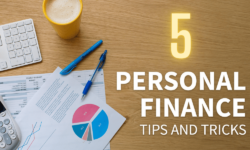How to start investing in Real Estate
Have you been thinking of investing in the real estate industry? It is a common misconception that you must have plenty of money to start investing in real estate, but this is far from the truth because anyone can invest in real estate even if you have a little starting capital.
You can invest in real estate in various ways, from taking out a mortgage or renting out a room. The good thing about investing in real estate is that not all options require you to finance and maintain the properties.
Here are the 6 best ways to start investing in real estate.
6 Best Ways to Start Investing in Real Estate
- Rental Properties
Investing in rental properties is another way of investing in real estate. The good thing about rental properties is that they provide you with a steady stream of cash flow, and they have a likelihood of appreciating over time.
However, it is one of the most labor-intensive forms of real estate investing and requires a significant commitment. This is because you need to vet the tenants, pay for maintenance, and repairs, and deal with any problem.
Suppose you want to make money with rental properties. In that case, you can either invest in long-term rentals, where a family rents out a home, either a multi-unit or a single-family unit for a while, and they provide monthly payments.
You can rent out to short-stay tenants for one night or a week; it works more like an Airbnb. This is best for people who have extra rooms or have a guest house, or you can rent out your home as you go on vacation.
You can reduce the frustrations of owning rental properties by hiring a property management company, but note that this will reduce your earnings.
- Flipping houses
If you love fixing things and have a good eye for detail, then you can consider buying and flipping properties. And like rental properties, flipping involves a lot of work and commitment. This consists in buying undervalued properties, renovating them, and then selling them at a premium.
If you want to be a flipper, expect that things will not always turn as expected. There might be problems, such as budget increases, longer renovation timeframe, mistakes during the renovation, or trouble selling on the market. Therefore, always expect the unexpected but don’t let it beat you down.
You must want experts in terms of contractors, interior designers, attorneys, and accountants. This ensures that you can account for every penny and that your new property will be in tip-top condition.
If it’s your first time, look for properties that do not need major renovations and are in an up-and-coming-up neighborhood. So do your research well to avoid investing in a property whose location will never be catchy to recoup your investment.
- REITs (Real Estate Investment Trusts)
If you don’t have sufficient capital to invest in physical real estate, you can invest in Real Estate Investment Trusts. These are a good option for beginner investors as you can start with as little as $500. The upside of these investments is that you do not have any responsibilities. It is just like buying, but with REITs, you get paid higher dividends, and they are an excellent choice if you want to diversify your portfolio.
REITs are firms that own or operate real estate ventures, and like mutual funds, they have a variety of assets; therefore, when you invest in REIT, you earn a fraction of the revenue produced by those assets. The most common REIT is the Equity REITs, which allow investors to pool their money and invest in purchasing, developing, or managing real estate properties. And most REITs focus on apartment complexes, healthcare facilities, and hotels.
The good thing about REITs is that 90% of their annual revenue is distributed to the investors as dividends. Both are publicly through a brokerage firm, IRA, 401(k), and privately traded REITs. The upside of buying publicly traded REITs is that they are easy to liquidate, offer regular and high returns, and are taxed uniquely. They do not pay corporate tax, meaning more returns for the investors.
- Invest in your own home
Investing in your own home is the most common way people start investing in real estate. The majority take out a mortgage, and after you have made monthly payments for several years, you can cash on your home equity.
The plus is that you will have a place to call your own, but the returns are low unless you live in an area where property appreciation is high such that you will sell it at a premium.
More so, you will spend significantly on maintenance, repairs, home insurance, property taxes, and mortgage interest. But don’t these costs put you off from owning your first property, as you can take advantage of mortgage programs that support first-time home buyers.
- Real Estate stocks, mutual funds, and exchange-traded funds
They are best for beginners as they need low capital to start, offer dividends, and hold tax-advantaged investment accounts. They are great since you do not have to own any physical property. Real estate stocks vary, and they can be in the form of government-supported mortgages, construction companies, real estate agencies, and many more. So you do your research and due diligence before investing in any real estate stocks. And identify the one that fits your investment needs.
Like investing in stocks, you can also invest in real estate mutual funds or real estate ETFs, which you can buy through a brokerage account or tax-advantaged accounts like IRAs and 401(k).
- Crowdfunding real estate platforms
You’ve probably heard of crowdfunding, where investors pool their money to invest in a large project, real estate. This happens in crowdfunding real estate platforms, and it lets you invest in specific projects rather than a generic portfolio of properties.
They are best if you want to commit your money for the long-term from 5+ years. Although you can cash in your money before the timeframe is up, it will all depend on the platform’s discretion, and you may face early withdrawal penalties.
If you choose to invest in a real estate crowdfunding platform, be keen as additional charges reduce your returns. It is also essential to record where your money is going and track the progress of the investment property’s building, maintenance, and management.
Ensure that the person handling your investment is experienced and has handled previous projects successfully to avoid incurring losses.
Note that not all crowdfunding real estate platforms will accept you as some require starting deposits ranging from $500 to $25000 and above.
So do your research well. Some of the platforms that are good to start with include Fundrise, Crowdstreet, and DiversyFund.




